Our client Pratiksha came from India almost three years ago. In this interview she talks about German sunsets, Indian childhood teachers and the biggest challenge in her relocation process. She also tells us how she decided to move out of her comfort zone and start a new life in the German capital.
Start Relocation: Hi Pratiksha, nice to see you! And great that you have time for an interview about your relocation to Berlin. Let’s start with where you come from …
Praktisha: I am originally from India. My life journey began at a small town called Kolhapur, situated 380 kms from Mumbai. Basically I come from a small town famous for Red chillies, jaggery and wrestling.
How was your life there?
I am extremely fortunate to be raised in India, where childhood memories are colourful, nurtured with diversity of culture and there are always occasions to celebrate. If I have to limit my words, I would say that India taught me compassion, tolerance and especially the essence of life.
What did you study? / What did you work there?
I did my primary/high schooling in my hometown and then moved to Pune (another major city) to complete my Bachelors in Mechanical Engineering. I worked in the mechanical industry for nearly two years.
 Why did you decide to come to Berlin?
Why did you decide to come to Berlin?
Moving out of my comfort zone has been always important to me. Germany is known for its amazing technological developments in the automotive/mechanical industry. Coming to Germany for education was a pre-planned decision. I received acceptance letters from a few universities in Berlin.
However, finalising Berlin has a funny story behind it. In high school I was an energetic and talkative kid. My math tutor would always say – “You are crazy my child, you should go to Berlin”. This is a Franz von Suppé quote which he said in a different way to make fun/ scold me at times. Somewhere, in the subconscious mind, I always fancied Berlin. I was aware of the great cultural extravaganza of Berlin. Moreover, I also got admitted in HTW Berlin for Automotive management. This is how I landed up here.
What did you think when relocation became serious, when it was REALLY time to move?
Turning wishes to goals and then achieving those goals is majorly satisfying. When the time came to move – I felt proud of my parents, brothers, family and friends who supported me through the highs and lows. For me, being able to achieve my dreams was a hurdle in itself. I was excited about my future in Germany, but also super proud of my roots and my life that I was leaving behind.
When did you come to Germany and when did you start working at HelloFresh?
I moved to Berlin in October / November 2014. I moved to Berlin to pursue my masters in Automotive Management. I joined HelloFresh SE in February 2016 as a working student for Hellotech. I also completed my master thesis with HelloFresh SE (the Global IT team).
Did you come by yourself or with your family?
I came here by myself and not with family.
 Did you get help with the paperwork and the move in general?
Did you get help with the paperwork and the move in general?
I moved to Berlin as a student. I did not take any help with the paper work or general work. I had to do all the paper work in India before relocating as a student.
How was the support of Start Relocation?
I learned about Start Relocation when I got the full time employee contract at HelloFresh SE. Switching from a student visa to a work permit was very challenging.
I had decided to switch from Mechanical to IT. My educational qualifications had a mismatch with the job profile. HelloFresh SE and Start Relocation have taken a lot of effort to get the paperwork cleared. I give all our CTO Nuno Simaria, HR Sarah Rogers and Helen Neumann from Start Relocation for making this happen.
Helen managed to get my paperwork done, she took the appointment for the visa and also accompanied me to the visa office. This process from discussing the full time contract till getting the visa took nearly 4 months. Helen from Start Relocation agency has really been patient with me and handled all my doubts/questions very well. I have troubled her with lot of questions. Thank you Helen! (If you are reading this).
What did you organise yourself and what did Start Relocation/HelloFresh do for you?
For changing my visa to work permit, I have not done a single thing except providing my previous visa details. I did not worry much about this, Helen was amazing at her job 🙂 Start Relocation agency and the HR department have done all the work from scratch
- Making appointments at Ausländerbehörde
- Getting the paperwork done from the ZAV
- Accompanying me to the Visa office to get the work permit.
What was the most stressful part of relocating?
The most stressful part is establishing yourself and adapting to the changes. Personally, there was a huge difference related to the social factors, climatic conditions, lifestyle. I had never travelled to the west before relocating. Basically, the most stressful part is coping up with the nervousness of relocation. The only solution to this is keeping an positive attitude and – go for it!
What was the most funniest?
I come from a tropical country where Sunsets are around 7.00 pm all year round. I arrived to Berlin in winter. Berlin had sunset time around 3.00 pm – 4.00 pm. I found that so funny, because I automatically started being lazy and I never attended any lectures after lunch time. It was funny how the body feels tired automatically after sunset.
It took me two months to cope with this.
Did you have any doubts while moving?
No, I had no doubts while moving. I was prepared or may be confident about the decision I made.
How would you describe what was crucial about the relocation service?
The most crucial thing about relocation service was the smart solutions they provided for each problem that we faced while getting a Work visa. They also took into consideration my individual suggestions, understanding the legal scope of their work and then taking concrete action in acquiring the visa. They have also been considerate enough to approach for help with accommodation.
 When did you start to feel home in Berlin?
When did you start to feel home in Berlin?
After moving to the student apartment. I did not have a permanent apartment for two months after moving to Berlin. The day I set up the furniture in my apartment I knew that it was home. Sadly, I have to leave my current apartment by the end of this year. I can always rely on Start Relocation for finding a new home. 🙂
In which district do you live?
I stay in Lichtenberg.
What´s the lifestyle of this place?
The place I stay in is a Student apartment. We have a lot of diversity there, it is also a very calm area. It is not as fancy as Mitte/ Prenzlauer Berg. It is beautiful in its own way. For a person like me who loves to be home in a peaceful location, enjoys strolls in the park with animals around it’s the best place to be in.
What´s extremely different to where you come from?
Climate. I come from a place where 15 degrees celsius temperature was considered to be winter. While in Berlin, that’s the summer. At least this year.
What do like the most about Berlin?
You know the famous quote from Jack Lang “Paris is always Paris but Berlin is never Berlin”. It has been more than 2 years now and I am still exploring the various layers of Berlin. From street art to diverse people. From varying different lifestyles to music & museums. Everything is vivid and crazy. I think that “you don’t move to Berlin, you become Berlin.“
Is there anything you would recommend to people who plan to relocate to Berlin?
Berlin is diverse, and definitely has opportunities for talent. You should definitely start your own story in Berlin, but you need to plan for it. This includes knowing about the job market, housing situation, living expenses. I have experienced the city evolving, adapting to it is the ultimate key.
What is your profession at HelloFresh?
Currently I am 1LQA Manager at HelloFresh SE, I also support my team as QA Engineer. It has been a wonderful experience so far, HelloFresh SE focuses on the individual professional growth along with team progress.
How is your team … how international is it?
HelloFresh SE is very diverse. We have many nationalities. My colleagues are from Turkey, Morocco, South America, United Kingdom, Canada, all around Europe.
Well, interview is finished… You are also happy you can go back to work now?
I am, because it´s always something new.
Thanks for your time, Praktiksha, and sharing your relocation story. It was a pleasure to talk to you!
•
Would you like to find out more about relocating to Germany? Just
email us if you have any questions about the immigration process.
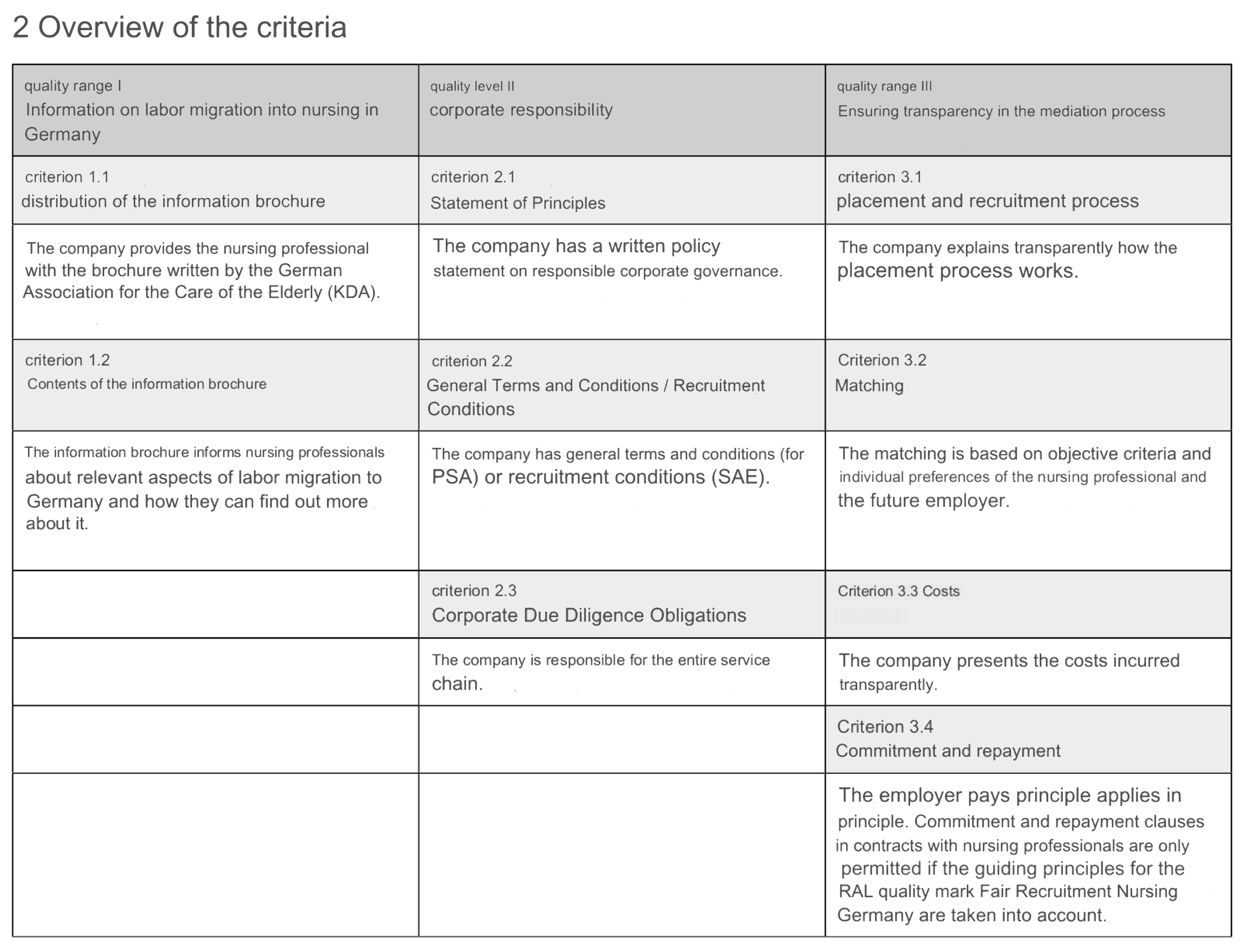




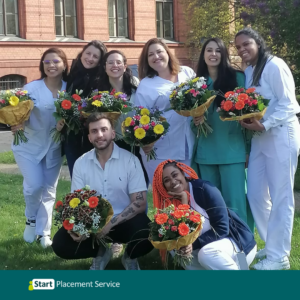


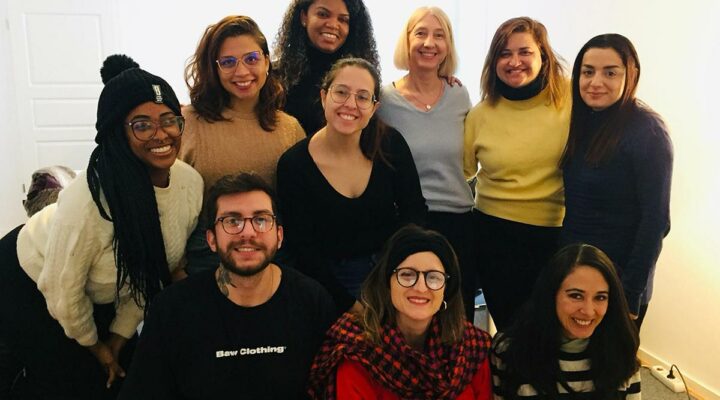

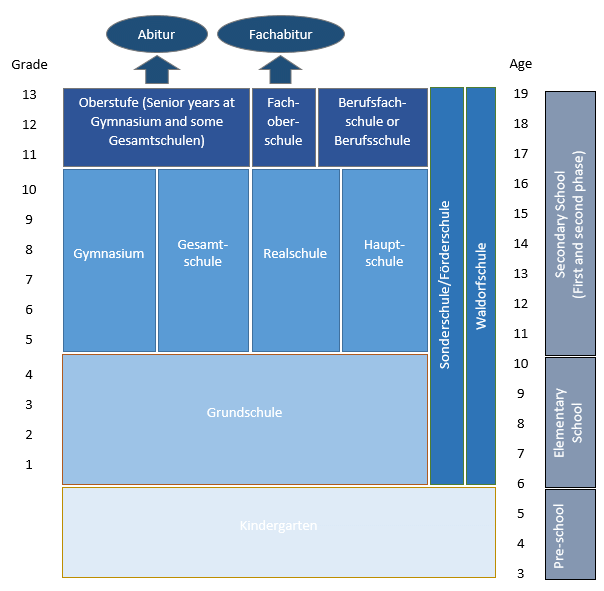
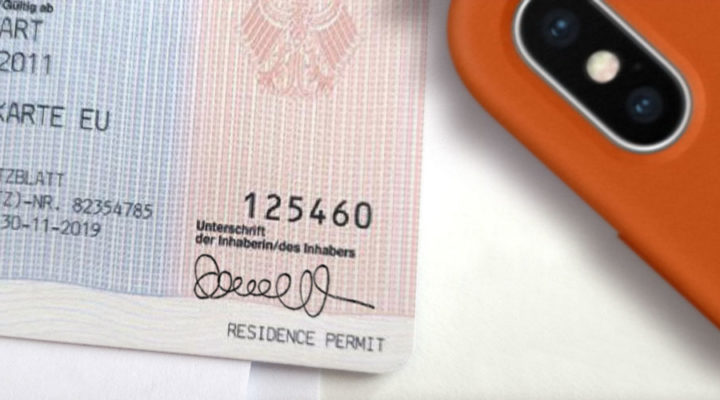

 Third step: being recognized as a “specialist”
With my help, Ana prepares the required documents and receives the provisional license in no time. She moves to Berlin and has her first weeks as a resident doctor in the midst of the city – intensive and challenging, but utterly rewarding. She then contacts me again with a wish she had been thinking of for a while now. Ana would like to pursue her career and be recognized as a “specialist” in a relevant medical field – this usually entails a higher salary and greater responsibility. She asks me: “But can I start this process when I still don’t have my approbation?”. I tell her that this is possible. Receiving the title of “specialist” may take several years (depending on the medical field you choose) and may be started as well with your temporary medical license. The time in which you were practicing with a temporary license may be added to your overall training time, but there is unfortunately no guarantee for that. In the end this also depends on if your position with your provisional license had been in the same area in which you also want to take your specialty.
If you are already a specialist in a medical field, you may also get this title recognized in Germany and directly start with a higher salary (link to blog: salaries for doctors). This is relatively secure if you come from another EU member state, but more complicated from if your diploma was issued in a state outside the EU. No matter where you come from, you first have to get your approbation in order to be recognized and work as specialist. Your documents will be examined extensively so be prepared for gathering a whole pile for the process!
Fourth step: Starting a new life
When Ana and I meet several weeks after her arrival for her final appointment at the Foreigners’ office, she is already deeply immersed in her new life and tells me about all the new changes that have happened since we last spoke. With her Blue Card in hand and approbation on the way, she is all set for a new adventure that may very well last a lifetime.
•
Third step: being recognized as a “specialist”
With my help, Ana prepares the required documents and receives the provisional license in no time. She moves to Berlin and has her first weeks as a resident doctor in the midst of the city – intensive and challenging, but utterly rewarding. She then contacts me again with a wish she had been thinking of for a while now. Ana would like to pursue her career and be recognized as a “specialist” in a relevant medical field – this usually entails a higher salary and greater responsibility. She asks me: “But can I start this process when I still don’t have my approbation?”. I tell her that this is possible. Receiving the title of “specialist” may take several years (depending on the medical field you choose) and may be started as well with your temporary medical license. The time in which you were practicing with a temporary license may be added to your overall training time, but there is unfortunately no guarantee for that. In the end this also depends on if your position with your provisional license had been in the same area in which you also want to take your specialty.
If you are already a specialist in a medical field, you may also get this title recognized in Germany and directly start with a higher salary (link to blog: salaries for doctors). This is relatively secure if you come from another EU member state, but more complicated from if your diploma was issued in a state outside the EU. No matter where you come from, you first have to get your approbation in order to be recognized and work as specialist. Your documents will be examined extensively so be prepared for gathering a whole pile for the process!
Fourth step: Starting a new life
When Ana and I meet several weeks after her arrival for her final appointment at the Foreigners’ office, she is already deeply immersed in her new life and tells me about all the new changes that have happened since we last spoke. With her Blue Card in hand and approbation on the way, she is all set for a new adventure that may very well last a lifetime.
•

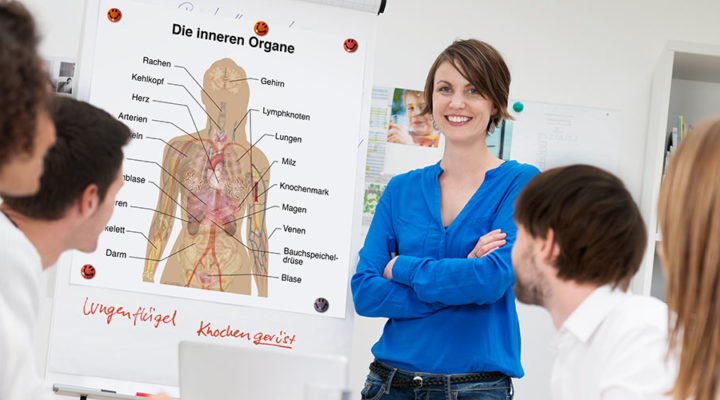
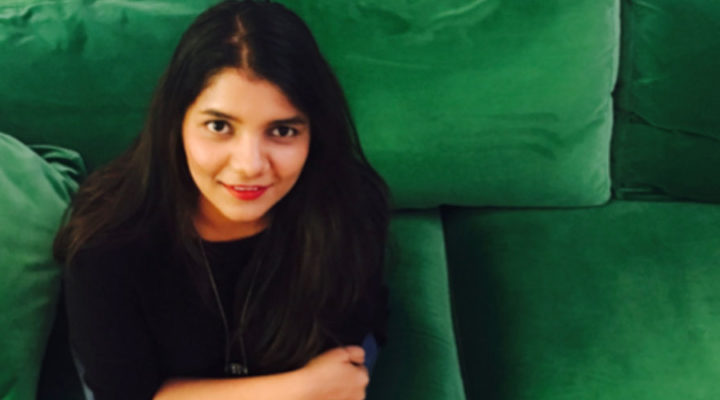
 Why did you decide to come to Berlin?
Moving out of my comfort zone has been always important to me. Germany is known for its amazing technological developments in the automotive/mechanical industry. Coming to Germany for education was a pre-planned decision. I received acceptance letters from a few universities in Berlin.
However, finalising Berlin has a funny story behind it. In high school I was an energetic and talkative kid. My math tutor would always say – “You are crazy my child, you should go to Berlin”. This is a Franz von Suppé quote which he said in a different way to make fun/ scold me at times. Somewhere, in the subconscious mind, I always fancied Berlin. I was aware of the great cultural extravaganza of Berlin. Moreover, I also got admitted in HTW Berlin for Automotive management. This is how I landed up here.
What did you think when relocation became serious, when it was REALLY time to move?
Turning wishes to goals and then achieving those goals is majorly satisfying. When the time came to move – I felt proud of my parents, brothers, family and friends who supported me through the highs and lows. For me, being able to achieve my dreams was a hurdle in itself. I was excited about my future in Germany, but also super proud of my roots and my life that I was leaving behind.
When did you come to Germany and when did you start working at HelloFresh?
I moved to Berlin in October / November 2014. I moved to Berlin to pursue my masters in Automotive Management. I joined HelloFresh SE in February 2016 as a working student for Hellotech. I also completed my master thesis with HelloFresh SE (the Global IT team).
Did you come by yourself or with your family?
I came here by myself and not with family.
Why did you decide to come to Berlin?
Moving out of my comfort zone has been always important to me. Germany is known for its amazing technological developments in the automotive/mechanical industry. Coming to Germany for education was a pre-planned decision. I received acceptance letters from a few universities in Berlin.
However, finalising Berlin has a funny story behind it. In high school I was an energetic and talkative kid. My math tutor would always say – “You are crazy my child, you should go to Berlin”. This is a Franz von Suppé quote which he said in a different way to make fun/ scold me at times. Somewhere, in the subconscious mind, I always fancied Berlin. I was aware of the great cultural extravaganza of Berlin. Moreover, I also got admitted in HTW Berlin for Automotive management. This is how I landed up here.
What did you think when relocation became serious, when it was REALLY time to move?
Turning wishes to goals and then achieving those goals is majorly satisfying. When the time came to move – I felt proud of my parents, brothers, family and friends who supported me through the highs and lows. For me, being able to achieve my dreams was a hurdle in itself. I was excited about my future in Germany, but also super proud of my roots and my life that I was leaving behind.
When did you come to Germany and when did you start working at HelloFresh?
I moved to Berlin in October / November 2014. I moved to Berlin to pursue my masters in Automotive Management. I joined HelloFresh SE in February 2016 as a working student for Hellotech. I also completed my master thesis with HelloFresh SE (the Global IT team).
Did you come by yourself or with your family?
I came here by myself and not with family.
 Did you get help with the paperwork and the move in general?
I moved to Berlin as a student. I did not take any help with the paper work or general work. I had to do all the paper work in India before relocating as a student.
How was the support of Start Relocation?
I learned about Start Relocation when I got the full time employee contract at HelloFresh SE. Switching from a student visa to a work permit was very challenging.
I had decided to switch from Mechanical to IT. My educational qualifications had a mismatch with the job profile. HelloFresh SE and Start Relocation have taken a lot of effort to get the paperwork cleared. I give all our CTO Nuno Simaria, HR Sarah Rogers and Helen Neumann from Start Relocation for making this happen.
Helen managed to get my paperwork done, she took the appointment for the visa and also accompanied me to the visa office. This process from discussing the full time contract till getting the visa took nearly 4 months. Helen from Start Relocation agency has really been patient with me and handled all my doubts/questions very well. I have troubled her with lot of questions. Thank you Helen! (If you are reading this).
What did you organise yourself and what did Start Relocation/HelloFresh do for you?
For changing my visa to work permit, I have not done a single thing except providing my previous visa details. I did not worry much about this, Helen was amazing at her job 🙂 Start Relocation agency and the HR department have done all the work from scratch
Did you get help with the paperwork and the move in general?
I moved to Berlin as a student. I did not take any help with the paper work or general work. I had to do all the paper work in India before relocating as a student.
How was the support of Start Relocation?
I learned about Start Relocation when I got the full time employee contract at HelloFresh SE. Switching from a student visa to a work permit was very challenging.
I had decided to switch from Mechanical to IT. My educational qualifications had a mismatch with the job profile. HelloFresh SE and Start Relocation have taken a lot of effort to get the paperwork cleared. I give all our CTO Nuno Simaria, HR Sarah Rogers and Helen Neumann from Start Relocation for making this happen.
Helen managed to get my paperwork done, she took the appointment for the visa and also accompanied me to the visa office. This process from discussing the full time contract till getting the visa took nearly 4 months. Helen from Start Relocation agency has really been patient with me and handled all my doubts/questions very well. I have troubled her with lot of questions. Thank you Helen! (If you are reading this).
What did you organise yourself and what did Start Relocation/HelloFresh do for you?
For changing my visa to work permit, I have not done a single thing except providing my previous visa details. I did not worry much about this, Helen was amazing at her job 🙂 Start Relocation agency and the HR department have done all the work from scratch
 When did you start to feel home in Berlin?
After moving to the student apartment. I did not have a permanent apartment for two months after moving to Berlin. The day I set up the furniture in my apartment I knew that it was home. Sadly, I have to leave my current apartment by the end of this year. I can always rely on Start Relocation for finding a new home. 🙂
In which district do you live?
I stay in Lichtenberg.
What´s the lifestyle of this place?
The place I stay in is a Student apartment. We have a lot of diversity there, it is also a very calm area. It is not as fancy as Mitte/ Prenzlauer Berg. It is beautiful in its own way. For a person like me who loves to be home in a peaceful location, enjoys strolls in the park with animals around it’s the best place to be in.
What´s extremely different to where you come from?
Climate. I come from a place where 15 degrees celsius temperature was considered to be winter. While in Berlin, that’s the summer. At least this year.
What do like the most about Berlin?
You know the famous quote from Jack Lang “Paris is always Paris but Berlin is never Berlin”. It has been more than 2 years now and I am still exploring the various layers of Berlin. From street art to diverse people. From varying different lifestyles to music & museums. Everything is vivid and crazy. I think that “you don’t move to Berlin, you become Berlin.“
Is there anything you would recommend to people who plan to relocate to Berlin?
Berlin is diverse, and definitely has opportunities for talent. You should definitely start your own story in Berlin, but you need to plan for it. This includes knowing about the job market, housing situation, living expenses. I have experienced the city evolving, adapting to it is the ultimate key.
What is your profession at HelloFresh?
Currently I am 1LQA Manager at HelloFresh SE, I also support my team as QA Engineer. It has been a wonderful experience so far, HelloFresh SE focuses on the individual professional growth along with team progress.
How is your team … how international is it?
HelloFresh SE is very diverse. We have many nationalities. My colleagues are from Turkey, Morocco, South America, United Kingdom, Canada, all around Europe.
Well, interview is finished… You are also happy you can go back to work now?
I am, because it´s always something new.
Thanks for your time, Praktiksha, and sharing your relocation story. It was a pleasure to talk to you!
•
When did you start to feel home in Berlin?
After moving to the student apartment. I did not have a permanent apartment for two months after moving to Berlin. The day I set up the furniture in my apartment I knew that it was home. Sadly, I have to leave my current apartment by the end of this year. I can always rely on Start Relocation for finding a new home. 🙂
In which district do you live?
I stay in Lichtenberg.
What´s the lifestyle of this place?
The place I stay in is a Student apartment. We have a lot of diversity there, it is also a very calm area. It is not as fancy as Mitte/ Prenzlauer Berg. It is beautiful in its own way. For a person like me who loves to be home in a peaceful location, enjoys strolls in the park with animals around it’s the best place to be in.
What´s extremely different to where you come from?
Climate. I come from a place where 15 degrees celsius temperature was considered to be winter. While in Berlin, that’s the summer. At least this year.
What do like the most about Berlin?
You know the famous quote from Jack Lang “Paris is always Paris but Berlin is never Berlin”. It has been more than 2 years now and I am still exploring the various layers of Berlin. From street art to diverse people. From varying different lifestyles to music & museums. Everything is vivid and crazy. I think that “you don’t move to Berlin, you become Berlin.“
Is there anything you would recommend to people who plan to relocate to Berlin?
Berlin is diverse, and definitely has opportunities for talent. You should definitely start your own story in Berlin, but you need to plan for it. This includes knowing about the job market, housing situation, living expenses. I have experienced the city evolving, adapting to it is the ultimate key.
What is your profession at HelloFresh?
Currently I am 1LQA Manager at HelloFresh SE, I also support my team as QA Engineer. It has been a wonderful experience so far, HelloFresh SE focuses on the individual professional growth along with team progress.
How is your team … how international is it?
HelloFresh SE is very diverse. We have many nationalities. My colleagues are from Turkey, Morocco, South America, United Kingdom, Canada, all around Europe.
Well, interview is finished… You are also happy you can go back to work now?
I am, because it´s always something new.
Thanks for your time, Praktiksha, and sharing your relocation story. It was a pleasure to talk to you!
•